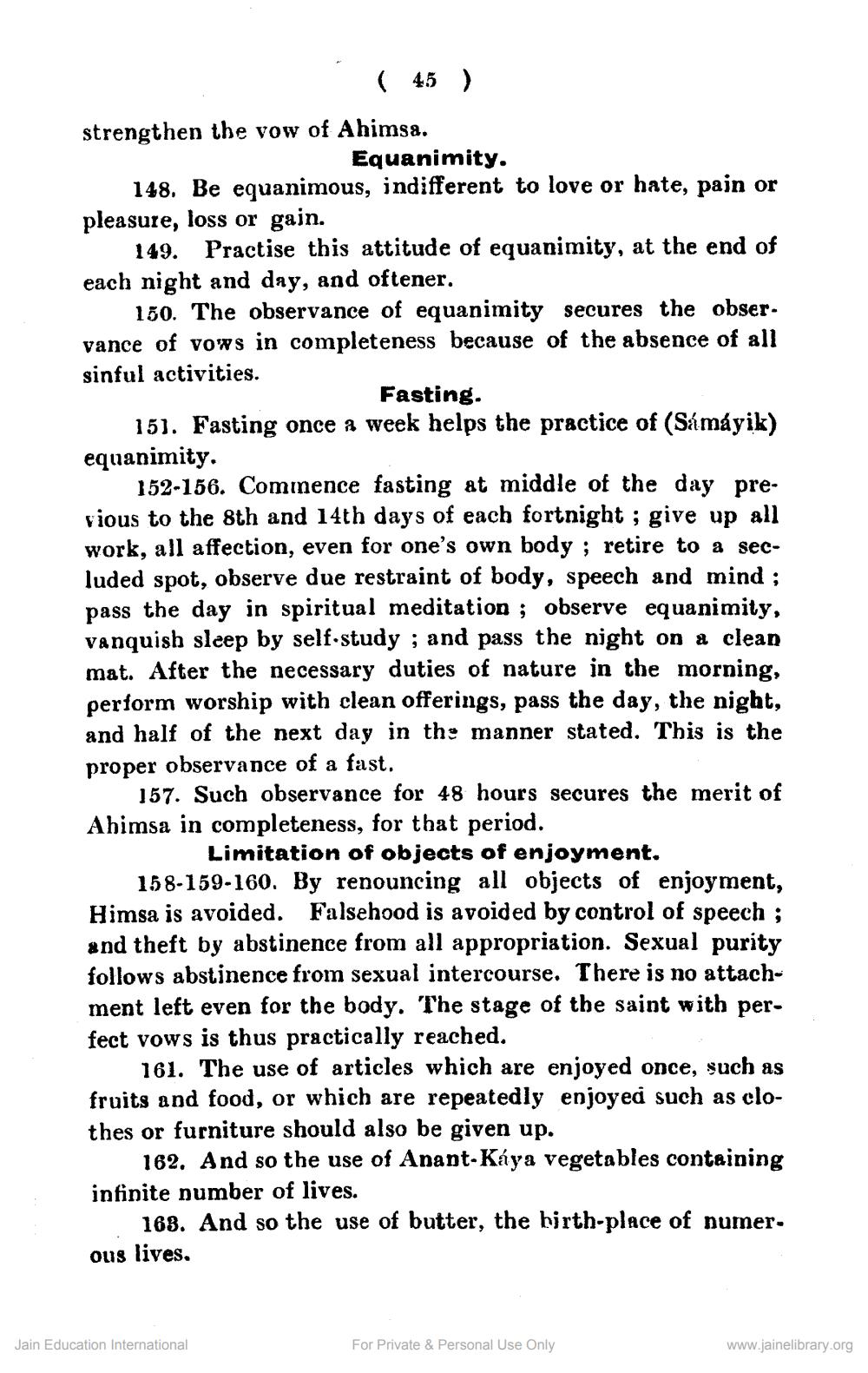________________
( 45 )
strengthen the vow of Ahimsa.
Equanimity.
148. Be equanimous, indifferent to love or hate, pain or pleasure, loss or gain.
149. Practise this attitude of equanimity, at the end of each night and day, and oftener.
150. The observance of equanimity secures the observance of vows in completeness because of the absence of all sinful activities.
Fasting.
151. Fasting once a week helps the practice of (Sámáyik) equanimity.
152-156. Commence fasting at middle of the day previous to the 8th and 14th days of each fortnight; give up all work, all affection, even for one's own body; retire to a secluded spot, observe due restraint of body, speech and mind; pass the day in spiritual meditation; observe equanimity, vanquish sleep by self-study; and pass the night on a clean mat. After the necessary duties of nature in the morning, perform worship with clean offerings, pass the day, the night, and half of the next day in the manner stated. This is the proper observance of a fast.
157. Such observance for 48 hours secures the merit of Ahimsa in completeness, for that period.
Limitation of objects of enjoyment.
158-159-160. By renouncing all objects of enjoyment, Himsa is avoided. Falsehood is avoided by control of speech; and theft by abstinence from all appropriation. Sexual purity follows abstinence from sexual intercourse. There is no attachment left even for the body. The stage of the saint with perfect vows is thus practically reached.
161. The use of articles which are enjoyed once, such as fruits and food, or which are repeatedly enjoyed such as clothes or furniture should also be given up.
162. And so the use of Anant-Káya vegetables containing infinite number of lives.
168. And so the use of butter, the birth-place of numer. ous lives.
Jain Education International
For Private & Personal Use Only
www.jainelibrary.org




